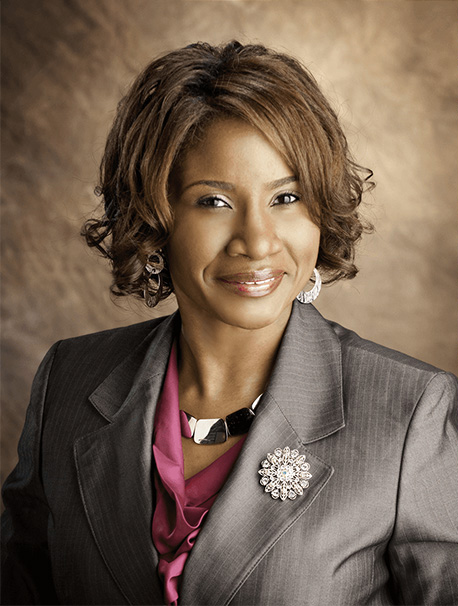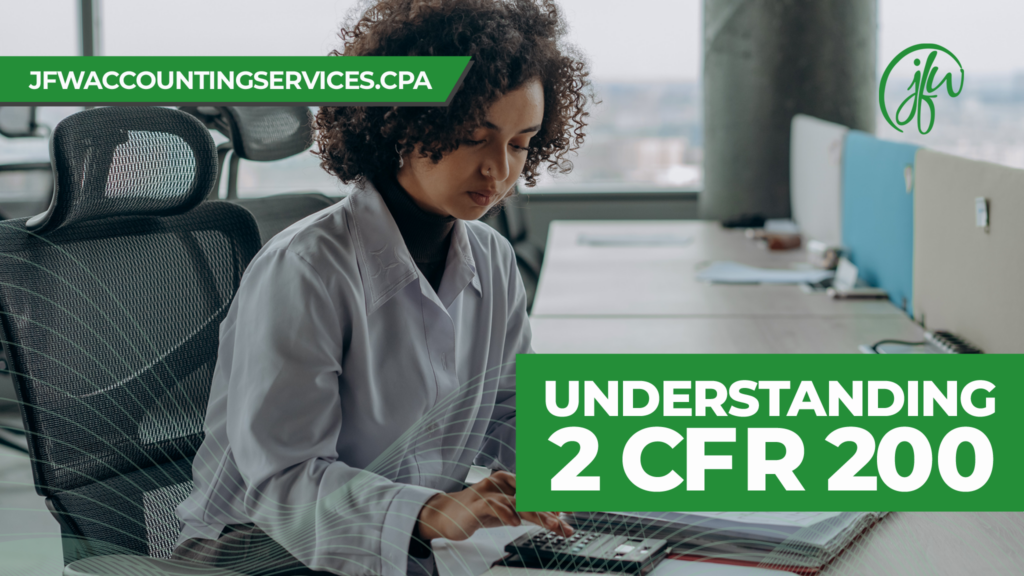Is your procurement process in compliance with 2 CFR 200? 2 CFR 200 outlines regulations that nonprofits must follow throughout the procurement process.
This set of regulations is relatively new, going into effect in 2014. Despite the newness, the federal government has taken a proactive approach to policing compliance.
Noncompliance could result in your nonprofit being excluded from receiving future awards and liable for paying back awards already received.
In this blog, we will cover the basics of 2 CFR 200, including key provisions, the impact on the procurement process, and how you can ensure your nonprofit has a smooth implementation.
Overview of 2 CFR 200
Title 2, Part 200 of the Code of Federal Regulations covers administrative requirements, cost principals, and audit requirements for federal awards. These provisions look to establish uniform standards across all federal award recipients.
In Subpart D, nonprofits must abide by specific procurement standards, which include documentation and acceptance practices. Most nonprofits receive funding from federal entities, which triggers the regulations of 2 CFR 200 procurement.
Key Provisions of 2 CFR 200 Related to Procurement
There are numerous provisions related to procurement worked into 2 CFR 200; however, there are some main ones to be aware of. First, your nonprofit must document procurement procedures. This generally involves creating a paper trail and using specific documents, like a Request for Information (RFI) and a Request for Proposal (RFP).
Additionally, the procurement process must avoid purchasing duplicate or unnecessary items, utilize shared governmental services, maintain proper contractor oversight, and use applicable procurement methods. The level of detail the federal government requires can become time intensive and error-prone. This is why many nonprofits utilize resources, like accounting software and grant management calendars.
The Impact of 2 CFR 200 on Nonprofit Procurement
Before 2 CFR 200, nonprofits had no defined procurement process they were required to abide by. The procurement processes could differ between organizations, resulting in higher costs.
Despite the expanded requirements, 2 CFR 200 helps nonprofits streamline their federal financial award processes. Each award should follow the same documentation and acceptance procedures, leading to more transparency to defined processes in your nonprofit.
Practical Implementation of 2 CFR 200 in Nonprofits
The implementation of 2 CFR 200 isn’t always as straightforward as CFOs and finance managers would hope. In fact, successful implementation often requires overhauling your old system.
This could be switching from manual grant management tracking to the use of a cloud-based grant management calendar or making the change from generic accounting software to software with specialized reporting capabilities.
Once your implementation is complete, 2 CFR 200 compliance takes consistent oversight. Consider organizing regular training sections, staying up-to-date on federal statutes in your grant awards, reviewing previously negotiated rates, and looking for ways to renegotiate.
Conclusion
2 CFR 200 is an important set of standards to understand and implement. These regulations do change, which is why it’s essential to stay updated on alterations impacting your nonprofit.
One way to keep your team up-to-date is to partner with the right resource. At JFW Accounting Services, we can help you manage your federal awards, infusing compliance and accuracy throughout the process.
Contact JFW Accounting Services for our outsourced CFO services powered by Sage Intacct.
Resources
Here are some additional resources to help you understand procurement in the nonprofit sector.
https://www.ifad.org/en/-/document/complete-list-of-standard-procurement-documents-templates

Jo-Anne Williams Barnes, is a Certified Public Accountant (CPA) and Chartered Global Management Accountant (CGMA) holding a Master’s of Science in Accounting (MSA) and a Master’s in Business Administration (MBA). Additionally, she holds a Bachelor of Science (BS) in Accounting from the University of Baltimore and is a seasoned accounting professional with several years of experience in the field of managing financial records for non-profits, small, medium, and large businesses. Jo-Anne is a certified Sage Intacct Accounting and Implementation Specialist, a certified QuickBooks ProAdvisor, an AICPA Not-for-Profit Certificate II holder, and Standard for Excellence Licensed Consultant. Additionally, Jo-Anne is a member of American Institute of Certified Public Accountant (AICPA), Maryland Association of Certified Public Accountants (MACPA), and Greater Washington Society of Certified Public Accountants (GWSCPA) where she continues to keep abreast on the latest industry trends and changes.

